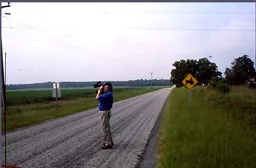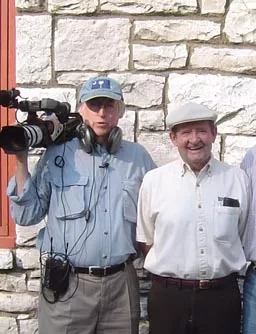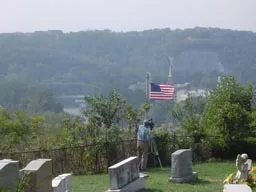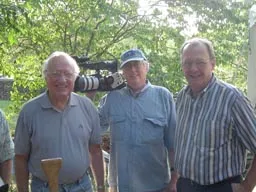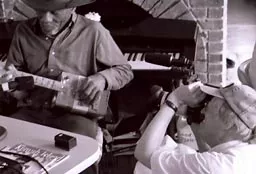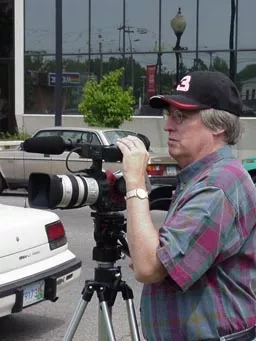R. Stanley “Stan” Woodward has two passions – documentary film making and the folk cultures he captures with his camera. For more than 40 years, Woodward has advocated for the traditional arts and folklife of South Carolina. His feature-length films and short documentaries about foodways, traditional music, and camp meetings have brought widespread recognition to folk artists and provided access to a variety of folk traditions in danger of being lost. Several of his documentaries have been broadcast by South Carolina ETV, as well as PBS stations in other Southern states.
Woodward is attentive to the people whose traditions he documents and a thoughtful conveyor of their talents and cultures. The power of Woodward’s documentaries comes from the authenticity and quality of his subject matter and his sincerity and virtuosity as a film maker. His low-key approach allows his subjects to speak for themselves while the storyline develops.
In 1975, Woodward began production of the film that established his reputation as an advocate of South Carolina traditional foodways. It’s Grits included first-person interviews, history, and the traditions surrounding this staple of Carolina cuisine. It’s Grits was broadcast nationally by PBS in the early 1980s, won a blue ribbon at the American Film Festival, and was designated a “keynote film” at the 1981 Margaret Mead Film Festival.
In Southern Stews (2001), Woodward explored the relationships between the ingredients, recipes and artifacts used in traditional one-pot cooking throughout the South, centering particularly on Carolina hash as a little-appreciated food tradition with uncertain origins. Realizing that Carolina hash deserved its own feature-length film, Woodward produced Carolina Hash: A Taste of South Carolina (2001), revealing the passionate commitment to the unique expressions of this unusual stew. Carolina Hash was awarded a Cine Golden Eagle.
Woodward continued a focus on foodways with Barbecue and Home Cooking: Foods That Make You Smile! In collaboration with McKissick Museum folklorist Saddler Taylor, Woodward investigated the folk heritage roots of 48 family-operated “meat and threes,” specialty restaurants, and barbecues in Aiken, Barnwell, Bamberg and Orangeburg counties. The film aired on SCETV’s Southern Lens series in 2005, bringing national attention and appreciative citizens to this “foodways trail.”
Woodward’s next project was very different – the long-running family traditions of music, food and preaching styles surrounding so-called “primitive” camp meetings dating to the mid-nineteenth century. Hallowed Ground: Camp Meetings of the South Carolina Low Country (2007) became a basis for a symposium at the College of Charleston.
Woodward’s final documentary project, Nothing to Prove: Mac Arnold’s Return to the Blues (2009-10) presented the story of a South Carolina farmer and bluesman who formerly played bass guitar with the legendary Muddy Waters. The film documents the formation of a new band, Plate Full O’ Blues, and provides insight into the band’s folk roots.
Woodward has donated hundreds of hours of film to the McKissick Museum Folklife Resource Center. The material covers a period when little firsthand documentary work was done to record local traditions. The National Endowment for the Arts recognized the material’s importance with a grant, enabling McKissick to prepare a number of films for the folklife archives.
During his career, Stan Woodward has greatly furthered the appreciation for and preservation of South Carolina’s traditional arts locally, regionally, and nationally. As an artist and educator, he has created a body of work that will be significant to the general public and to scholars for generations to come. Woodward received the Jean Laney Harris Folk Heritage Award in 2013.
